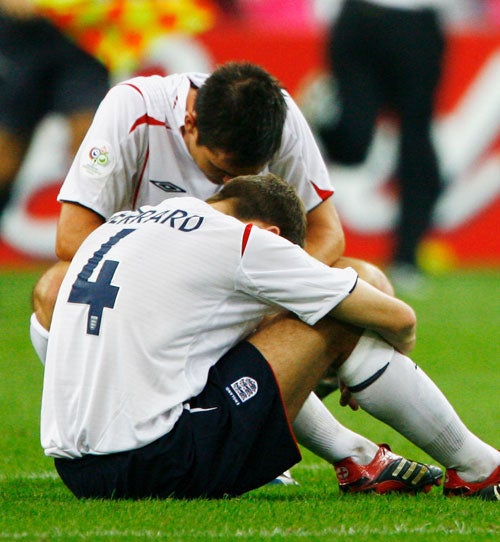Why club must always come before country
England play a friendly in 10 days' time but nobody cares, and calls for a winter break must be resisted

The ink has barely dried on England's World Cup obituaries but, in 10 days' time, Fabio Capello's men will rise from the dead for a friendly against Hungary at Wembley. Will Steven Gerrard be switched to the centre of midfield? Will Wayne Rooney play on his own up front? Most crucially of all, will anybody care?
Friendlies at this stage of the year are about as welcome as a downpour on Blackpool beach. Perhaps the Football Association arranged the fixture in the hope – no laughing at the back, please – that it would be a chance for the public to salute their heroes. The FA now expect 25,000 empty seats, while it is hard to see what Capello will learn from it.
The scheduling of these friendlies is an affront to the part of our game that we do as well as any other country in the world. All around the globe there is a huge appetite for English club football. Travel to almost any major city on the planet and you will find Premier League football on the local TV listings. Although the Premier League has its faults, it is arguable whether any other club competition provides such consistent excitement.
At this time of year there is nothing quite like the anticipation generated by the start of a new club season, yet many of the players will have prepared for their teams' opening matches in a fortnight by playing meaningless internationals in far-flung outposts.
Another lame display by England would no doubt lead to renewed calls for a winter break. Many European countries take a breather, but why should club football in Britain suffer for the sake of the international game? The Christmas programme has long been a part of our sporting landscape. Boxing Day and New Year's Day games draw big crowds, while the third round of the FA Cup in January is one of the football calendar's great days.
Do we ask too much of our best players? On occasions, yes. In order to reach the World Cup England had to play 10 matches against Andorra, Kazakhstan, Ukraine, Croatia and Belarus, none of whom competed at international level 20 years ago. Maybe the time has come to impose restrictions on the number of matches that individuals are allowed to play. Players could be restricted, for example, to a maximum of 45 club matches and 10 internationals during a season.
The answer should not be to cause further disruption to the club programme, via a winter break or by scrapping FA Cup replays, another part of our football heritage.
The proliferation of fixtures is only a problem for those teams competing in Europe with a large number of internationals in their squad. While an England international at a top club may be overworked – two seasons ago Frank Lampard appeared 66 times for club and country – a non-international with a Premier League also-ran has a less strenuous schedule. Hull City played a total of only 41 matches in all competitions last season.
Football is not like other sports in Britain (most notably cricket) that rely heavily on income and interest generated by national teams. If international success has been sacrificed on the altar of club football – and the evidence is far from convincing – so be it. World Cups and European Championships should remain major dishes in our sporting fare, but there is no way the ingredients that so enrich our club football should be diluted for the sake of the icing on the cake of international competition.
Join our commenting forum
Join thought-provoking conversations, follow other Independent readers and see their replies
Comments